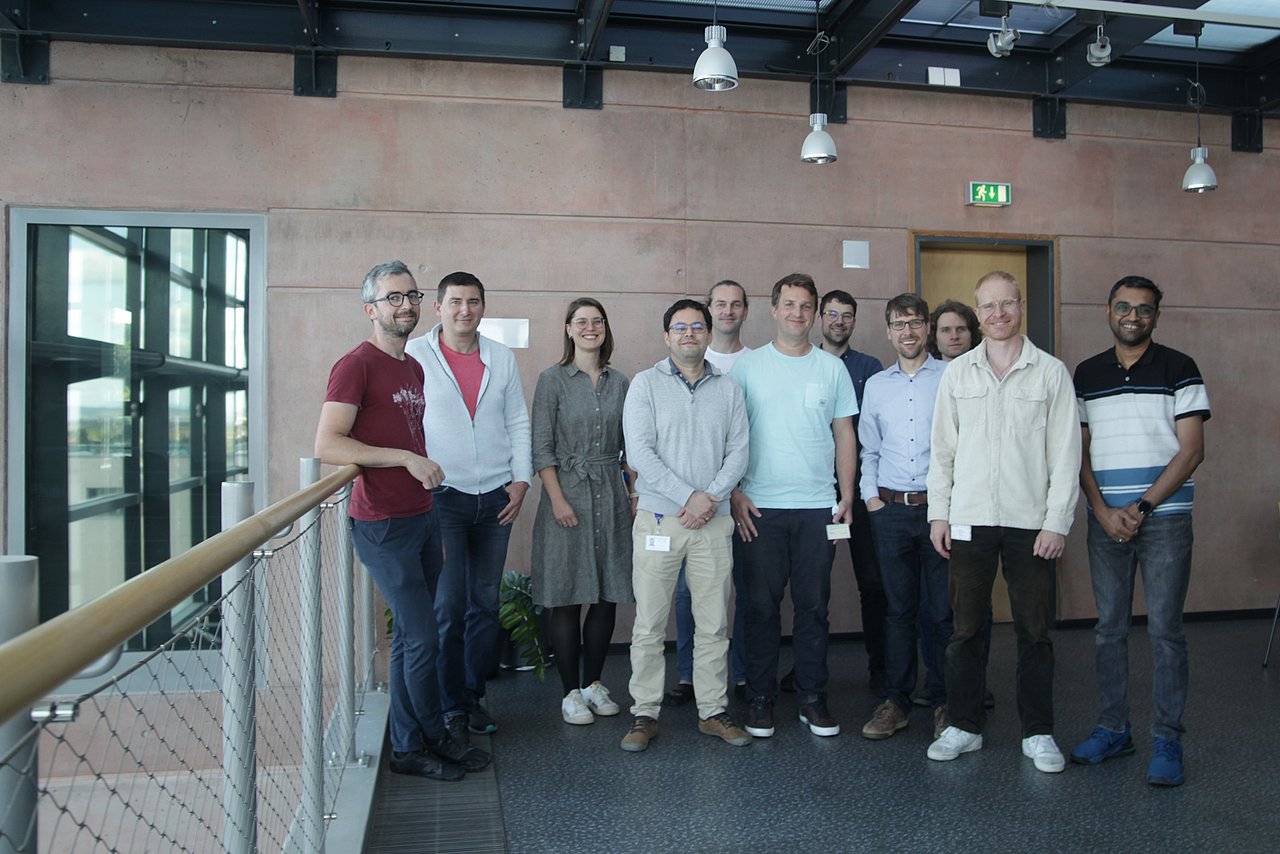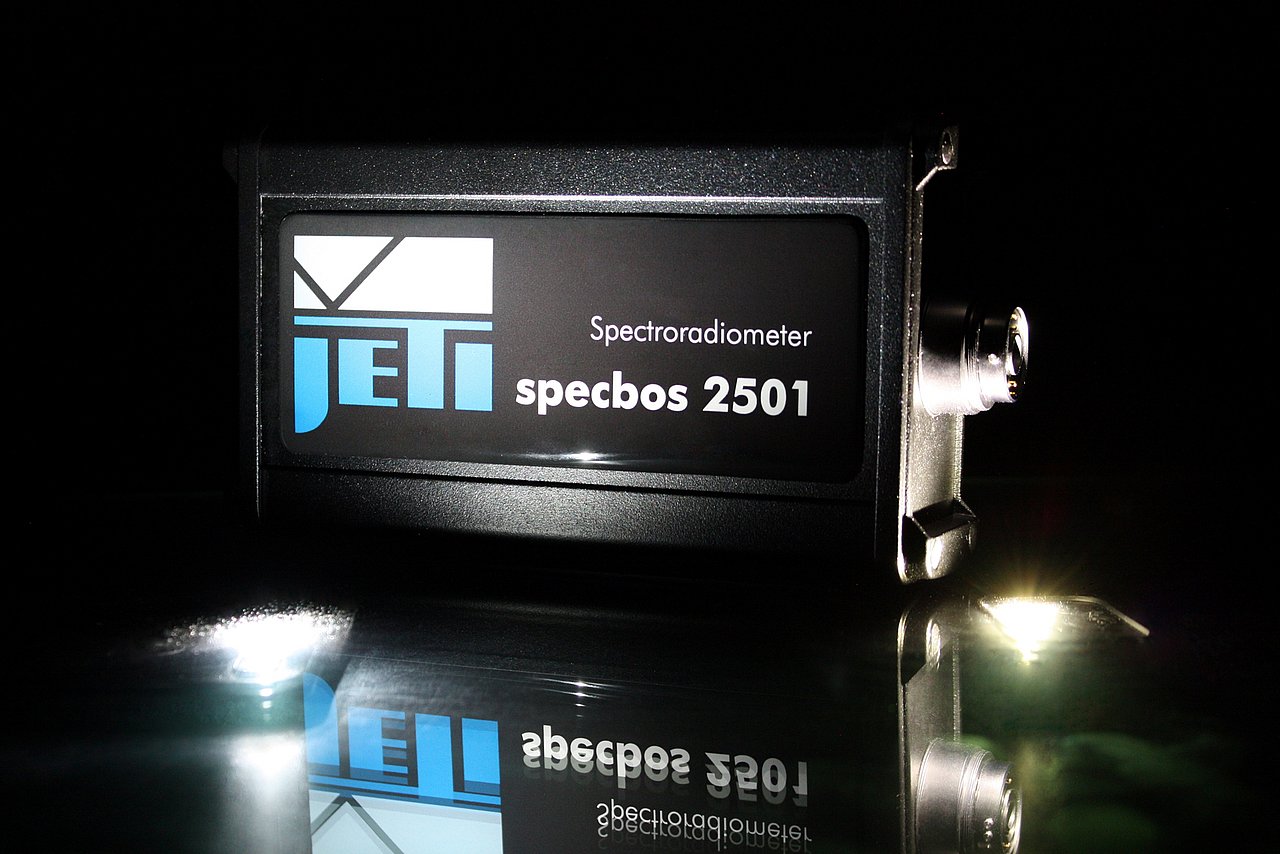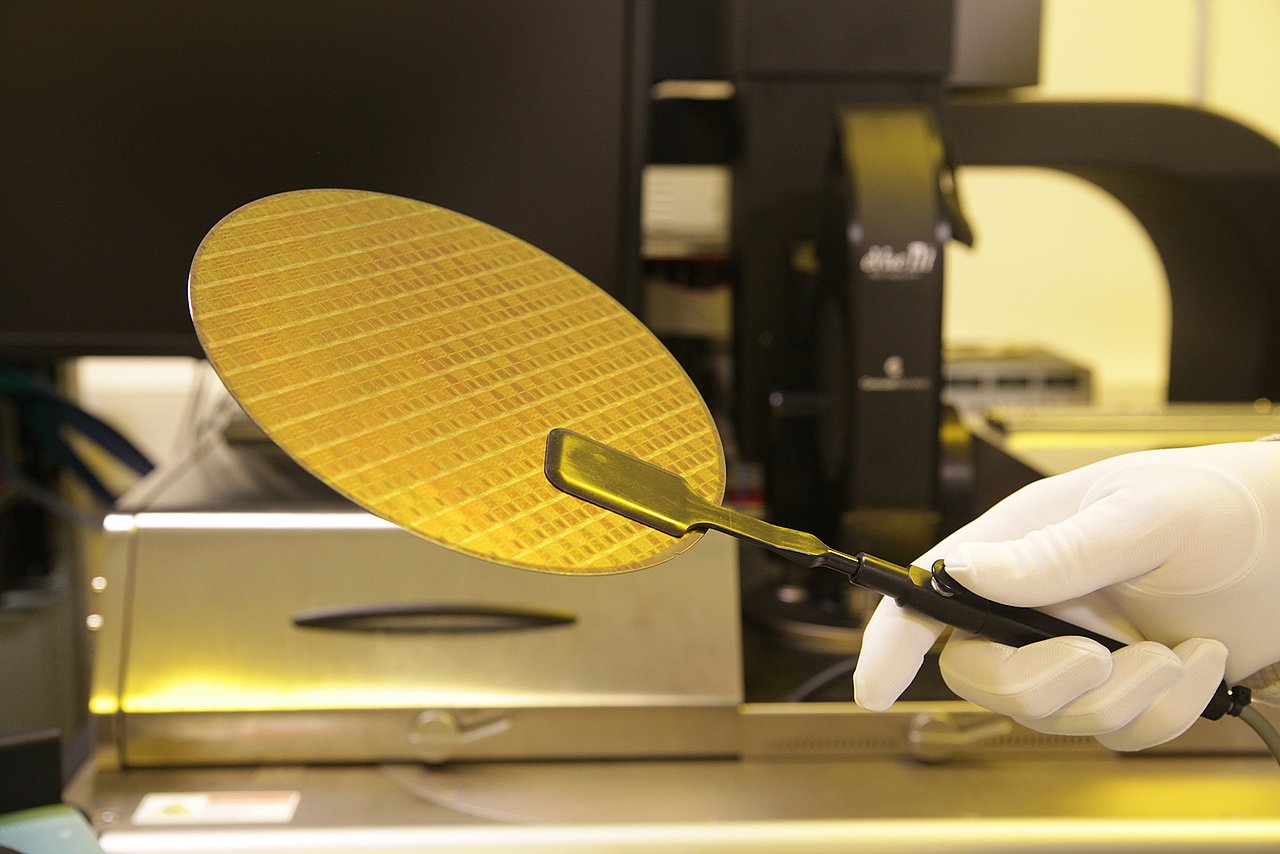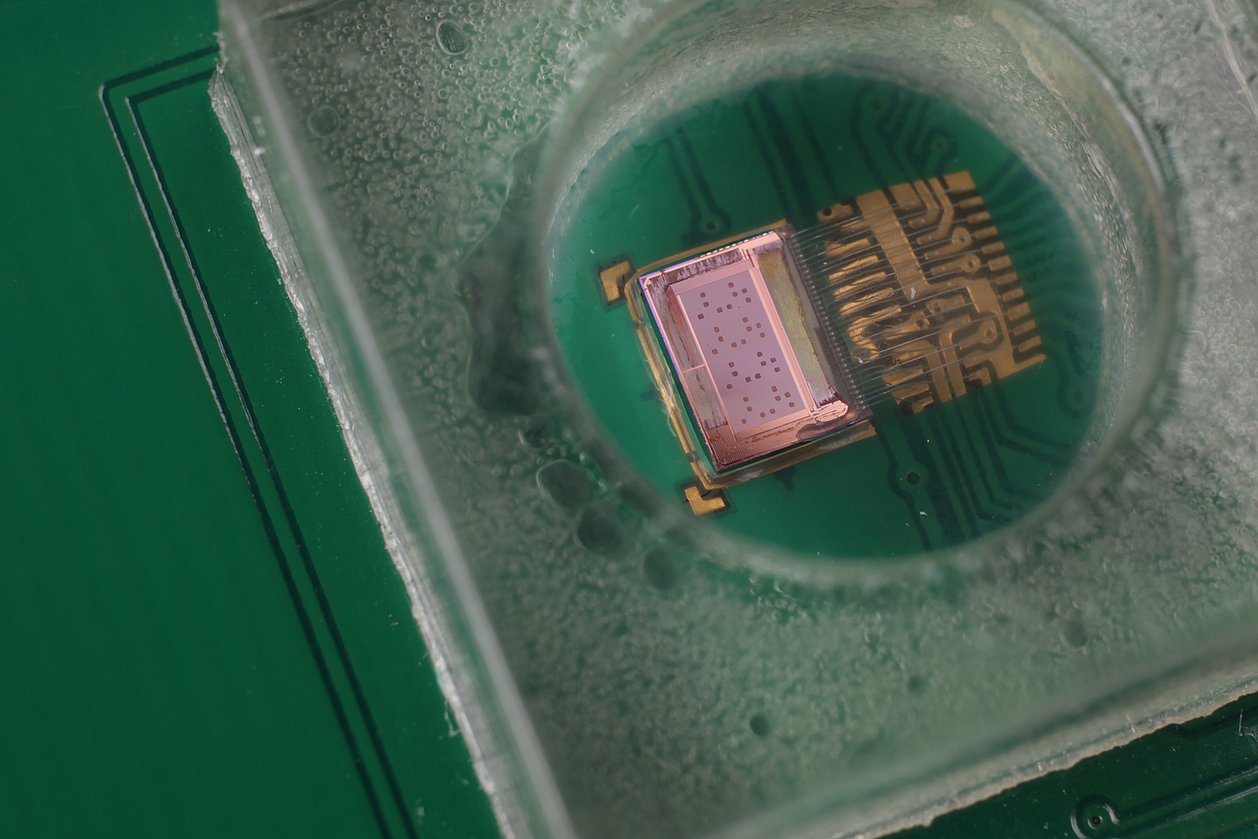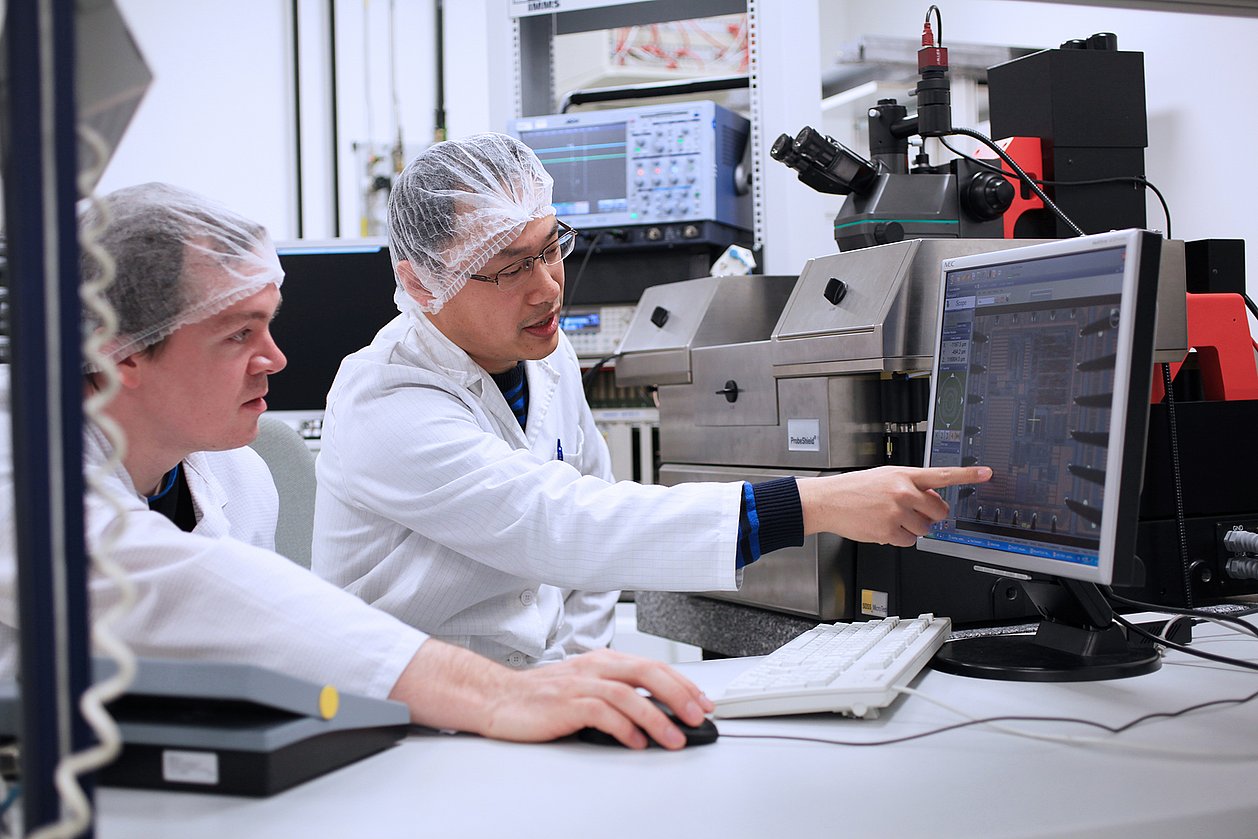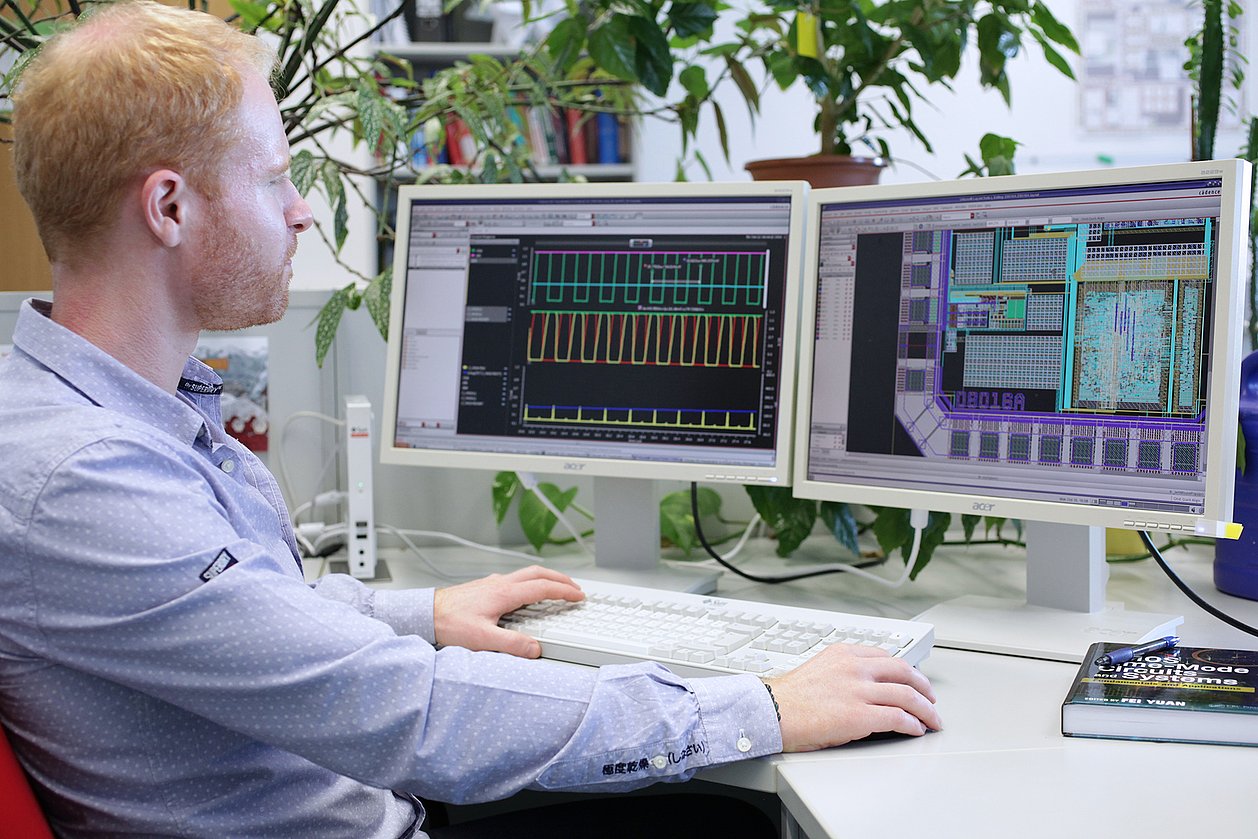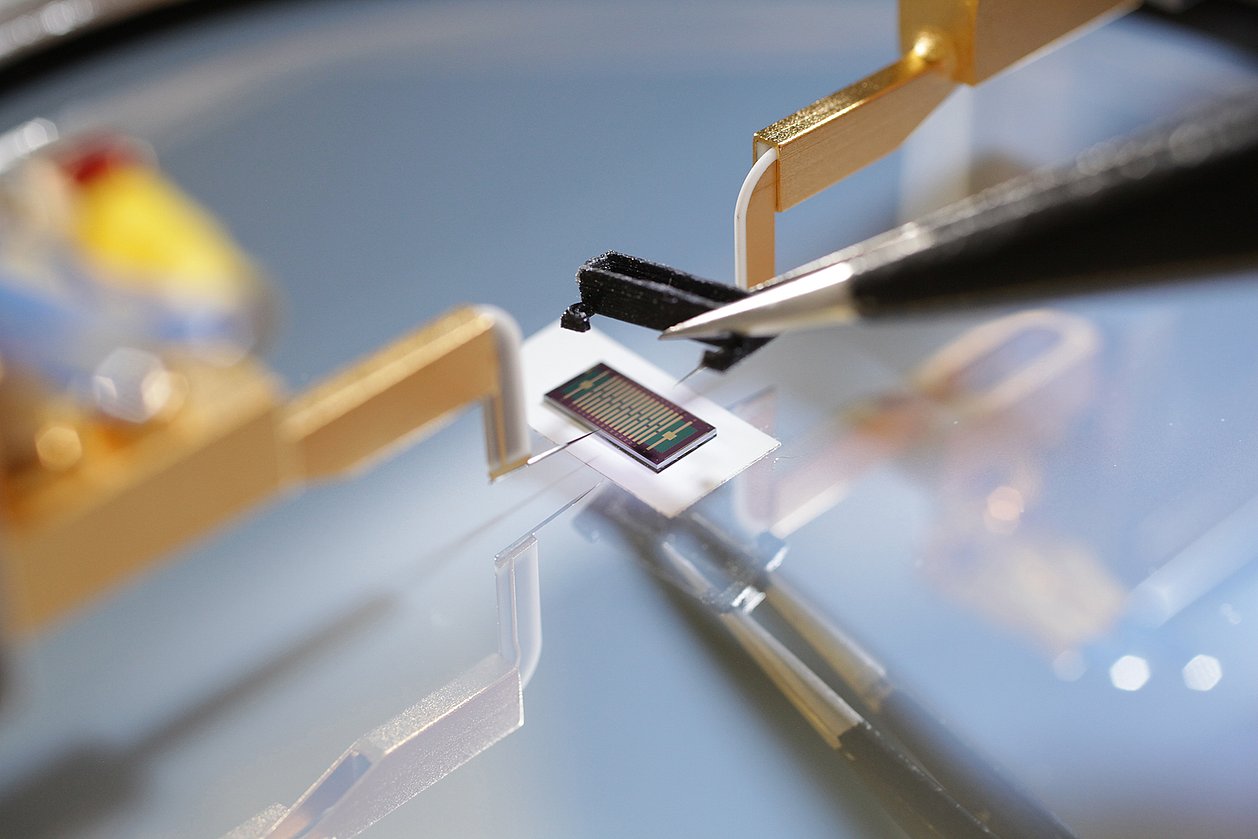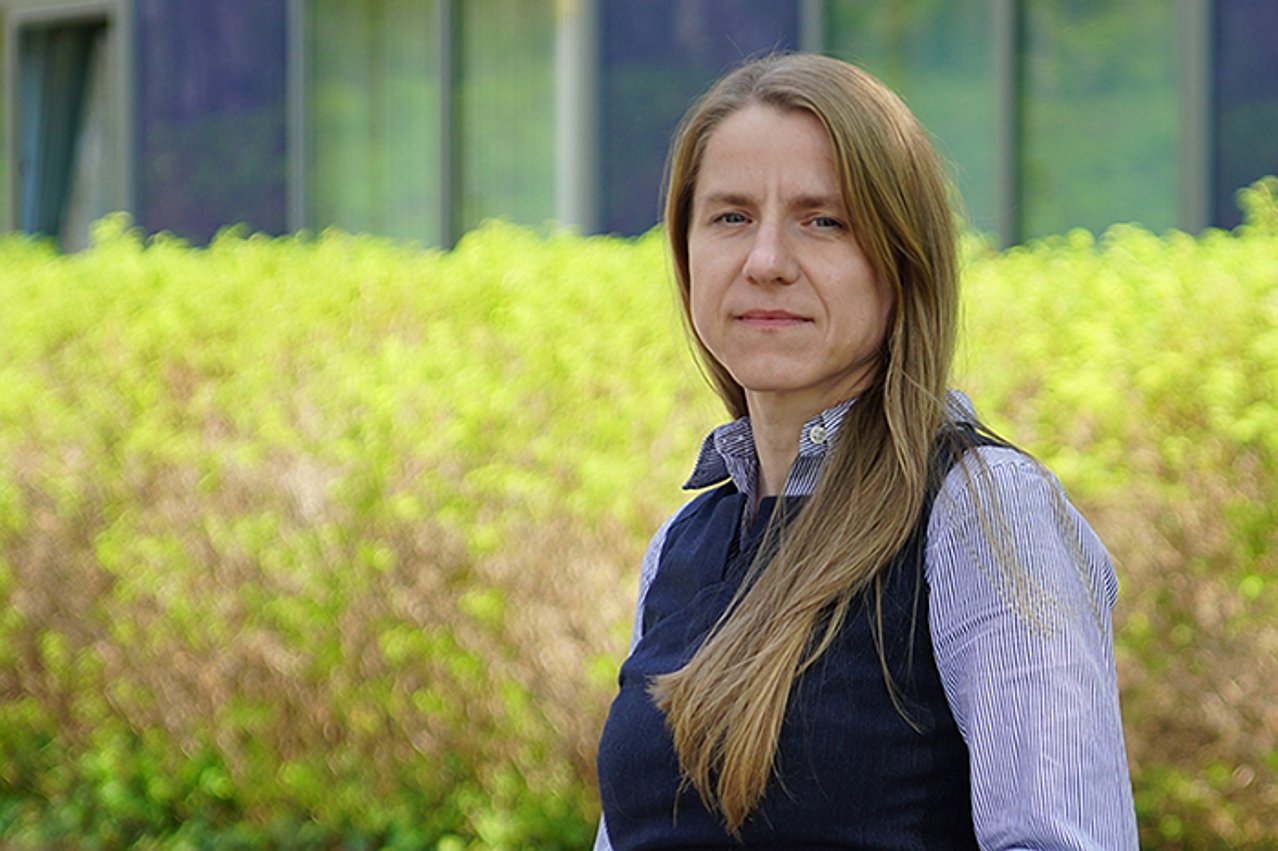Press releases
Innovative spectroradiometers for better analysis of light
Thuringian PANDIA project launched
With a kick-off meeting on 23 September 2025 in Erfurt, the project partners IMMS Institut für Mikroelektronik- und Mechatronik-Systeme gemeinnützige GmbH, JETI Technische Instrumente GmbH and X-FAB Global Services GmbH began work on the three-year joint project ‘PANDIA – Interdisciplinary Partnership for Innovative Spectroradiometers from Thuringia’, which was launched in September. The project, which is funded by the German Land of Thüringen and co-financed by the European Union, brings together expertise in optics and photonics from Jena with expertise in microelectronics and sensor technology from Erfurt. The aim is to develop new generations of spectroradiometers with higher sensitivity, shorter measurement times and a larger dynamic range to analyse light much better and more efficiently for numerous applications.
Spectroradiometers – universal tools with limits
Spectroradiometers are indispensable tools in many scientific and industrial applications that require precise analysis of the spectral properties of light. They are used worldwide in a wide variety of fields – from HDR display and projector manufacturing and the lighting industry to photovoltaics, materials science and environmental technology, the food industry, pharmaceutical quality control, medical research and diagnostics.
However, in terms of speed, measurement accuracy, dynamic range and stability, the global state of the art does not meet the economic and technical requirements in some applications, for example because the measurements hold up production for too long, environmental influences such as high temperatures can distort the results, and new reference measurements and recalibrations then cause further delays. The reason for this is that the devices have so far relied on purchased detectors. In addition, components such as mechanical shutters and, for more demanding measurements, cooled sensors or optical assemblies are used, which hinder compact integration into small measuring devices.
Novel integrated sensor technology for spectroradiometers
In PANDIA, the partners are therefore developing application-specific line sensor chips for the first time. These include two new sensor concepts that will be integrated into the microelectronic chips. On the one hand, photodiode-based line sensors with integrated electronic dark reference are being developed. These will replace solutions with the conventional mechanical shutter, halving the measurement time and increasing robustness. Secondly, the development of SPAD-based line sensors will use single-photon avalanche diodes (SPADs), which detect individual photons and can therefore detect even extremely weak light sources.
In addition, both sensor concepts feature integrated analogue-to-digital converters and temperature sensors, which will increase measurement accuracy and facilitate system integration.
X-FAB, JETI and IMMS pool expertise
The project combines the strengths of three Thuringian partners: IMMS coordinates the project, will develop the microelectronic sensor chips from circuit diagrams, layout and simulation to commissioning, and will assist with integration into the spectroradiometers. JETI will contribute its experience in the development and marketing of spectroradiometers and integrate the new sensors into demonstrators for suitability tests and into laboratory samples that will be evaluated under real-life conditions in application-oriented scenarios. X-FAB will provide the XS018 semiconductor technology and supply optimised photodiodes and SPADs. This close cooperation will close the regional value chain from semiconductor manufacturing to research to the end product.
Contribution to technological sovereignty
PANDIA will make the German Land of Thüringen less dependent on non-European suppliers for critical sensor components. The new generation of spectroradiometers will be faster, more sensitive and more robust, thereby strengthening the international competitiveness of the partners involved. At the same time, the project will contribute to the economic development of the region by linking the innovative strength of Thüringen's two key industries, optics/photonics and microelectronics.
Funding
The interdisciplinary partnership for innovative spectroradiometers from Thüringen (PANDIA) is supported by the funding programme of the German Land of Thüringen for the promotion of research, technology and innovation (RTI) as the research and development initiative Thüringen Verbund under the joint project number 1004537, the IMMS topic “Development and research of line sensor ICs for spectroradiometers” under the reference 2025 VFE 0027.
This might also be interesting for you
Related content
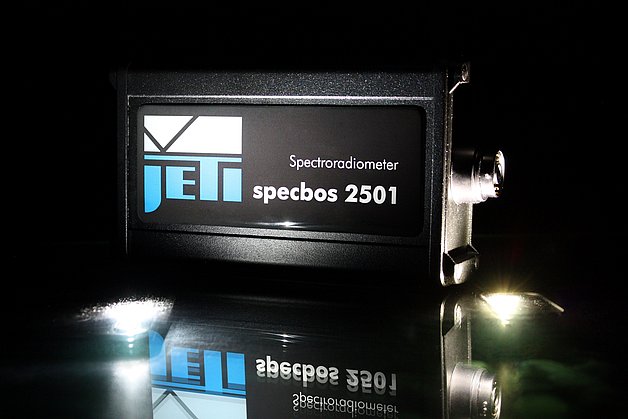
Project
PANDIA
IMMS develops novel CMOS and SPAD sensor ICs for spectroradiometers for faster and more sensitive analysis of light
Contact
Contact
Dipl.-Hdl. Dipl.-Des. Beate Hövelmans
Head of Corporate Communications
beate.hoevelmans(at)imms.de+49 (0) 3677 874 93 13
Beate Hövelmans is responsible for the text and image editorial work on this website, for the social media presence of IMMS on LinkedIn and YouTube, the annual reports, for press and media relations with regional and specialist media and other communication formats. She provides texts, photographs and video material for your reporting on IMMS, arranges contacts for interviews and is the contact person for events.


